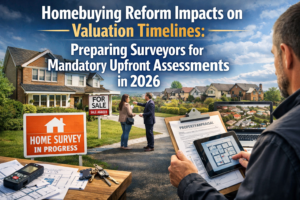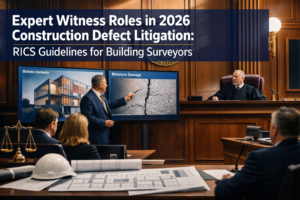
Party Wall Consent
The Party Wall Notice allows the adjoining owner 14 days to reply to the Notice and to appoint a surveyor if they wish to.
In case the other party not reply within 10 days, your surveyor can serve them another notice, giving them an additional 10 days to respond.
If your neighbours agree to the building works, then you may not need a Party Wall Award. This would benefit you since the Award process can be slow and tedious.
When you obtain consent, make sure it’s in writing and not just verbal.
If the neighbouring property owner does not respond within the set timeframes, a surveyor will have to be appointed to act on their behalf, and an official dispute will be considered to have arisen.
When the opposing party disagrees with you, it’s an “actual” dispute. They may respond with a counter notice, asking you to revise your project in certain ways. A counter notice
states that the work you proposed to do cannot go ahead unless certain terms have been agreed upon. Attempts should be made to resolve the dispute and allow agree to some common terms to enable the works to proceed as planned.
When conflict is ongoing and an agreement cannot be reached, the law requires that a surveyor be appointed to make a “Party Wall Award.” The Award is a document that sets forth the rights and responsibilities of the two parties in relation to the wall and ensures that the party not doing the work won’t be adversely affected by the works being carried out by the other party. The Award also covers the two parties in cases where things go wrong. Both parties can select their own surveyor (at the expense of the party doing the work). Alternatively, both parties can agree to use a single “Agreed Surveyor.”
In case you’re required to obtain a Party Wall Award, you will need to appoint a surveyor to do the work for you. Although this might incur lead to additional cost, you should view this cost as part of the overall administrative expense of the project. Appointing a surveyor is not avoidable if you are to achieve your objective, and it is a step that may well improve your chances of achieving an objective without any issues along the way.
To better understand your specific case, please reach out to one of our expert party wall surveyors in Manchester. They will offer you advice that is specifically tailored to meet your requirements.
You will begin to understand the potential costs of the party wall project once you’ve served the notices and received responses. This will give you an idea of the number of adjoining owners (and their surveyors) you’ll need to negotiate with. The type of notices you might send out include:
- Party Structure Notice: If any work is to be done on a shared wall or structure, such as making a cut to it, thickening it, increasing its height, or demolishing/rebuilding it, the party intending to do the work must serve a notice to the other party at least 2 months before the intended start date.
- Line of Junction Notice: This focuses on the construction of a new wall either up to or astride the boundary between two properties. This notice must be served at least 1 month before work starts and is relevant to both new walls and old walls being rebuilt.
- Excavation Notice: This notice must be given that excavations will take place within 3 to 6 meters of a neighbouring building’s foundation and that the digging will go deeper than the neighbouring building’s foundation. This notice must be given at least 1 month before the start of the work.
The notices must include detailed information about the works, such as drawings, the relevant sections that apply, and a description of what works are being carried out and when, as well as how long the adjoining owner has to respond (usually 14 days).
The adjacent owner must be made aware of the particulars of the works being executed. The parties involved in the execution of the works must provide the adjoining owners with comprehensive information including the nature of the works and the amount of time that the other party has to respond to the served notice.
What is the Process for Manchester Party Wall Surveyor
If you plan to change the party wall or the boundary wall around your property during a construction project, the 1996 Party Wall Act governs what you must do to keep the owners of adjacent buildings informed and to minimize any inconvenience or potential damage to them. The act requires that you give affected neighbours either one month’s or two months’ notice, depending on the type of project and the wall-work involved.
Once the notice is received, the adjoining owner has three options to choose from:
- Agree to the work: in this case no further actions are required.
- Object to the notice but agree to a joint surveyor.
- Object to the notice and choose to appoint their own surveyor.
The last two alternatives necessitate the adjacent owner’s property going through a condition survey before construction begins, to show what state the neighbouring property is in. However, it is recommended to do this for the first method as well. The condition survey is issued to both parties who each have 14 days to dispute any of the findings. Both parties sign the condition survey with the understanding that any damage discovered as a result of the construction will have to be paid for.
It is certainly not uncommon for surveyors to disagree, which is why we call on a “Third Surveyor” prior to the start of surveying work. If the “Two Surveyors” can not come to an agreement, the Third Surveyor resolves the dispute and settles judgment.
What is the Cost of Schedule of Condition
Negotiations in Party Wall in Manchester
The surveyor for the owner of the building will handle the negotiations concerning the fee payable to the adjoining owner’s surveyor. The building owner’s surveyor will check the timesheet of the other surveyor for errors and overall reasonableness. There could be multiple valid reasons why the building owner’s surveyor might not be happy with the fees proposed by the adjoining owner’s surveyor—from outrageous travel expenses to excessive hourly rates for what should be common tasks. If the two surveyors can’t arrive at a resolution, the matter is turned over to the Third Surveyor, who figures out what should be paid to the respective party.
What is the Cost of the Adjoining Owner’s Surveyor?
While the Building Owner’s Surveyor will work to achieve a reasonable fee for the Adjoining Owner’s Surveyor, several factors need to be considered. These include:
- Travel Distance: the time required for the surveyor to commute
- Quality of Work: contributions related to the Award and/or Schedule of Condition
- Complexity: the extent of communication needed to resolve issues
The fee charged per hour must reflect the current market rate. This rate has to be something that the building owner’s surveyor will accept, and if the Two Surveyors can’t reach agreement, then the Third Surveyor will have to impose a solution.
The timesheet of the Adjoining Owner’s Surveyor typically would include these tasks:
- The review of notices and drawings
- The exchange of letters of appointment
- Assistance in the compilation of the schedule of condition
- Written and verbal communication (emails and phone calls)
- Editing the final party wall award
It is necessary to spend the time required and not merely to accumulate hours. If there is any doubt about that, the Third Surveyor can look into it.

Surveys of Commercial Property
If you’re thinking of acquiring, leasing, subletting, disposing of, or altering commercial premises in Manchester, you would be well advised to locate a surveyor skilled in the nuances of commercial building surveying – should you spot a defect in a commercial building you can use that information to negotiate an asking price for the property that’s considerably lower than what the seller originally wanted, or you can talk your way out of a bad deal altogether.
Our Manchester-based team of RICS-compliant commercial building surveyors is equipped to handle matters throughout Manchester.
Contact
Our team prioritizes client care above all else. We look forward to being in touch with you so you can instruct a surveyor in Manchester, London, Bristol, Birmingham or Cardiff. You can reach out to us easily. Just fill out our form, and we’ll get back to you with a free quote for your survey. All our surveyors are qualified as members of the Royal Institution of Chartered Surveyors (RICS) and we are one of the UK’s leading providers of building survey and valuation services:
- Accredited Professionals: Certified by organizations like RICS, CIOB, and RPSA.
- Customized Survey Reports: inspections to meet your specific requirements.
- Local Expertise: Deep understanding and specialized knowledge.
- Expert Guidance: Professional recommendations and support.
The property survey you commission will be carried out by an accredited professional. Your chartered surveyor will be a member of the Royal Institution of Chartered Surveyors (RICS) or the Chartered Institute of Building (CIOB), or will belong to some other industry-standard professional body. Rest assured; you will receive highest quality of professional service for your survey.














